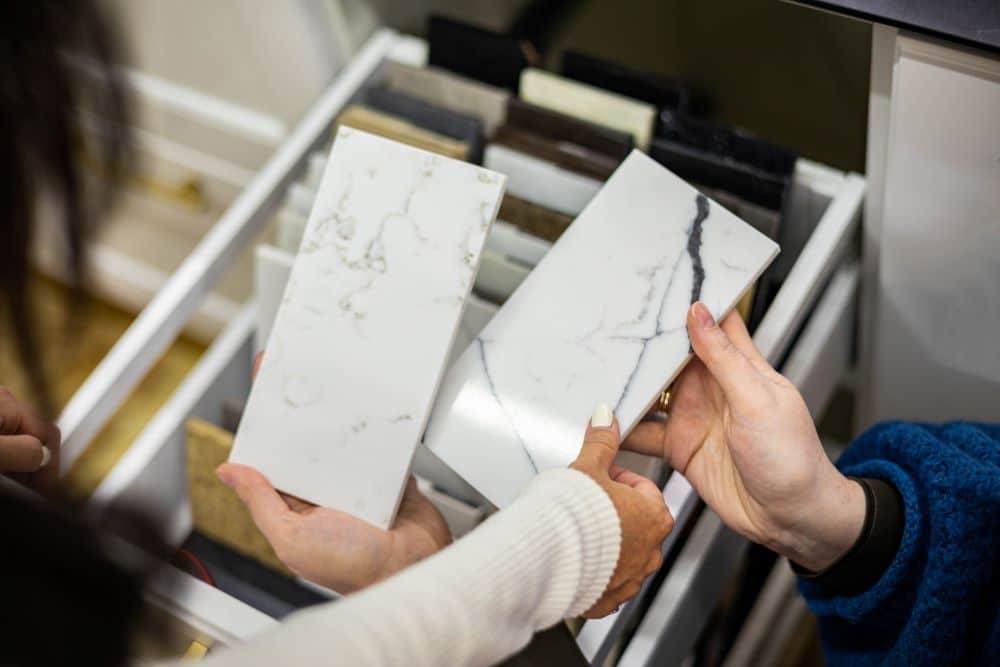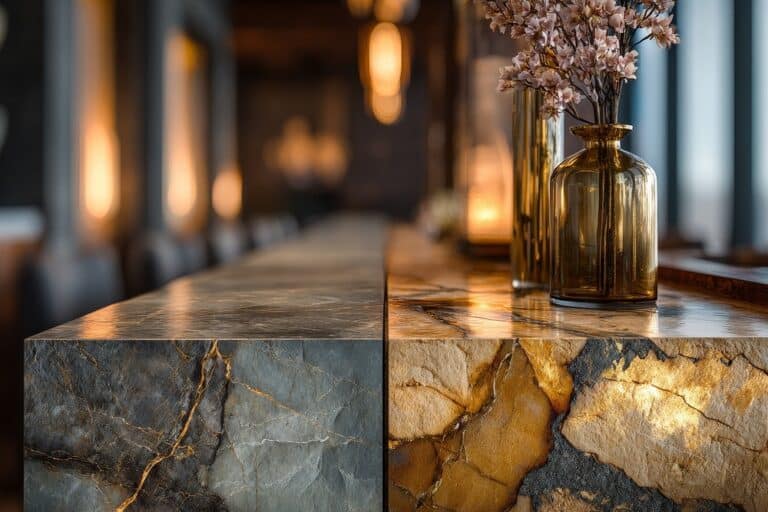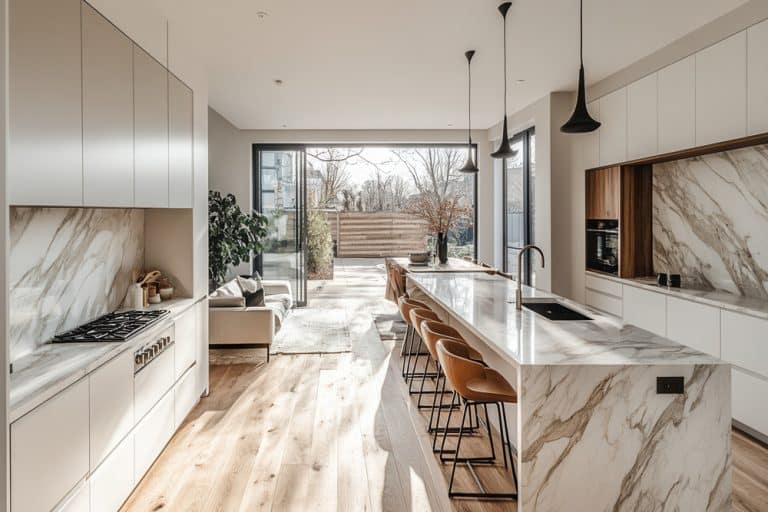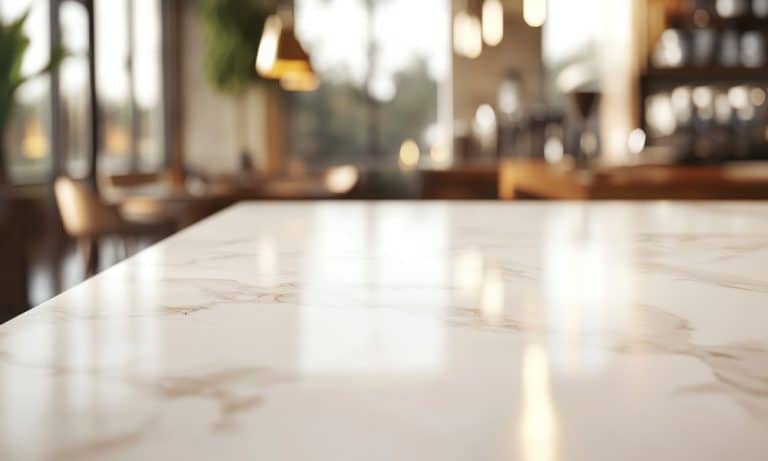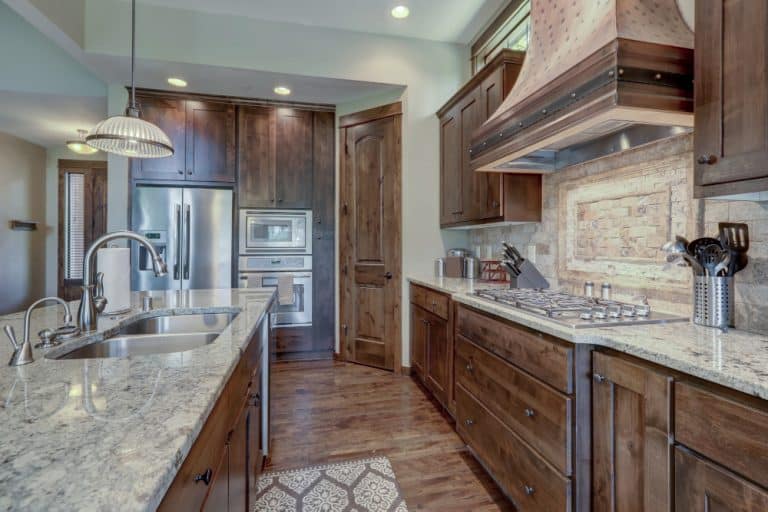As a consumer, you have plenty of choices in new countertop materials. Everything from wood to laminates and concrete to natural stone is on the table. Two of the hottest choices right now are quartzite countertops and quartz countertops. Did you know they are not the same thing?
Consumers often confuse quartzite and quartz due to their similar names. No doubt they are similar in some respects, but they are still distinct and unique materials in and of themselves. So let’s dive in and take a good look at both. Perhaps you’ll learn something from this post that will help you make your decision about new countertops.
Quartzite Is a Natural Stone
Quartzite is like marble and granite in the sense that it is a natural stone found in nature. It is actually formed when sandstone is exposed to high heat and pressure within the Earth’s crust. The heat and pressure forces sandstone’s quartz grains together to form a dense, tightly packed metamorphic rock.
Interestingly, quartzite boasts a fairly high quartz content. A product with more than 90% quartz is not unusual. It is this that makes quartzite as tough and durable as it is.
Manufactured Quartz Countertops
Although quartz is a natural mineral found in abundance around the world, it exists of fine grains (similar to sands) rather than deposits of metamorphic rock. Therefore, it’s impossible to cut quartz countertops from large slabs of stone. What we know as quartz – as a countertop material – is actually a manufactured product.
Quartz countertops are made by combining quartz minerals with a variety of resins and dyes. The resins hold everything together while the dyes give the material its color and visual texture. The right selection of dyes can be added to make a quartz product look like granite, marble, or even quartzite.
Both Materials Are Beautiful
Aesthetic beauty is one of the main drivers behind choosing either quartz or quartzite countertops. Both materials are truly beautiful. Quartzite, with its broad brush strokes and color variations, give any kitchen a classic and elegant look. And because quartzite is a natural stone, every slab is unique. Every countertop is different and distinct.
As a manufactured product, quartz can be made to look like virtually anything. That’s good in the sense that beauty is in the eye of the beholder. While most consumers want their quartz countertops to look like natural stone, some prefer a different look. It is all possible with quartz.
Quartzite Countertops Maintenance and Durability
If you are the type of consumer who places a heavy emphasis on countertop maintenance and durability, you have nothing to worry about with either quartzite countertops or quartz countertops. Quartzite is extremely hard. That means it is scratch resistant. But quartz is also highly resistant to scratches, chips, and stains.
Both quartzite and quartz can withstand moderate heat. However, quartzite is subject to scorching and staining when exposed to extremely high temperatures. Prolonged high heat can cause discoloration in a quartz countertop.
In terms of maintenance, quartz wins. Both surfaces clean up very well, especially if you make a point of staying ahead of spills in order to avoid stains. But the downside to quartzite is that it needs regular sealing. Otherwise, staining is a real possibility.
Quartzite and quartz are two viable choices for modern countertops. If you would like to compare them side-by-side, we invite you to visit any of our Utah showrooms. During your visit, be sure to take a good look at our marble and granite options as well. We are bound to have countertops that will tick every one of your boxes.

